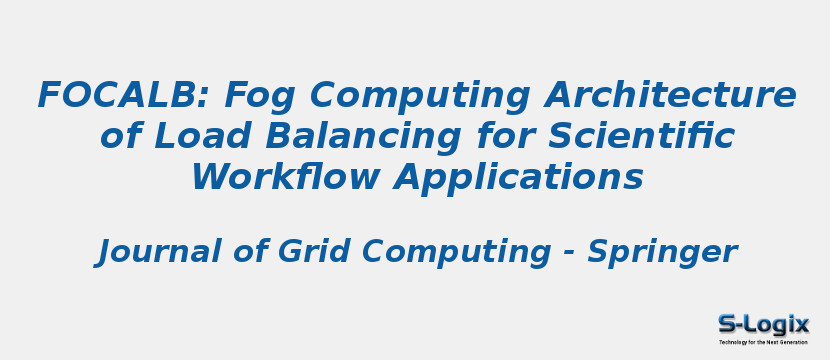Research Area: Fog Computing
Fog computing has a broad scope in real-time applications. It appears in the middle of Internet of Things (IoT) users and the cloud layer. The main applications of fog computing are to decrease latency and improve resource utilization for the end-users. Along with many advantages, fog computing also faces many challenges such as overloaded resources, security, deployment of nodes, and energy consumption. Load balancing is a challenging problem in a fog computing environment wherein, in more IoTs, the load distribution is required among all resources. Utilization of resources can be increased by the distribution of load in equal proportion among all fog resources. In scientific workflow systems, fog computing aids in proper resource utilization by uniformly dividing the workload. In this paper, we have proposed a Fog Computing Architecture of Load Balancing (FOCALB) for scientific workflow applications. The paper also proposed hybridized load balancing algorithm for scientific workflows (Tabu-GWO-ACO), which is an amalgamation of tabu search, Grey Wolf Optimization (GWO), and Ant Colony Optimization (ACO). The proposed model has been designed to enhance resource utilization by implementing load balancing at the fog layer. In the fog nodes, load scheduling is done when tasks are initialized, and local controller in fog clusters does load balancing. The simulation results are obtained with the help of iFogSim and Eclipse for 20 to 200 fog nodes. Simulated studies based on execution time, cost, and energy compared with various existing models show that FOCALB reduces energy consumption at fog nodes and reduces the execution time and implementation cost as well. The article is summarized by providing open challenges and future research directions.
Keywords:
Author(s) Name: Mandeep Kaur & Rajni Aron
Journal name: Journal of Grid Computing
Conferrence name:
Publisher name: Springer
DOI: 10.1007/s10723-021-09584-w
Volume Information: volume 19, Article number: 40 (2021)
